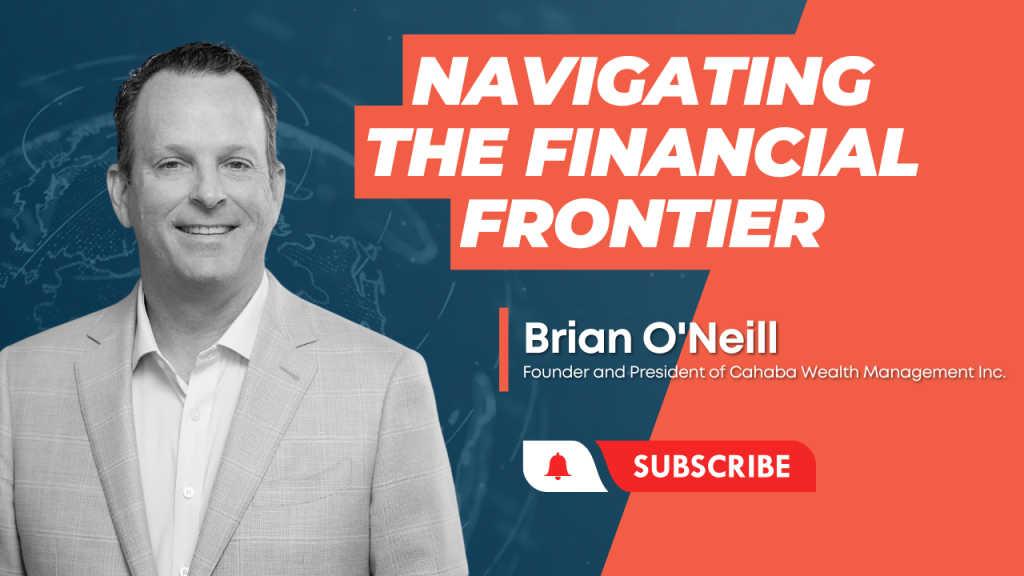11/2023
By Brian O’Neill, CFP®
Here we are again. By here, I mean in the midst of a market correction (defined as a more than 10% decline from the recent peak), and by again, I mean one of the now 39 different market corrections we have experienced since the 1950s according to Kiplinger’s1. To borrow the most recent cliché, market corrections are a feature of the investment system, not a bug. Effectively, I’m stating the obvious, but even the obvious can need some explanation from time to time.
To be clear, we are not cavalier about our clients’ portfolio performance. Rather, we try to remind everyone that successful investing is hard – stocks don’t always go up (and 2022 showed us neither do bonds), but the overall long term trend still remains a very positive one. Let’s take a minute or two to dissect the current environment, and remind ourselves why we invest in the first place.
The S&P 500 reached its 2023 highs on July 31, when it closed up 20.65% (data per YCharts2). Since that yearly high, we have been hit with a litany of news and events that the markets have worked to digest:
- Mostly good economic news, with inflation continuing to moderate, and employment actually growing solidly per the September BLS jobs report
- Consequently from the economic news, the 10-Year Treasury rate surging from 3.97% on July 31, to today’s yield of 4.84% (down from last week’s 16-year high of 4.98%)
- The latest conflict in the Middle East and the ongoing Ukraine/Russia conflagration
- Congressional dysfunction in the US House of Representatives with the House leader’s removal/resignation and subsequent meandering by House Republicans to elect a new Speaker
This by no means covers everything, but let’s tackle these bullets with some commentary:
Good economic news really does not need much commentary. While we may still experience a recession in the future, the fact that most economists predicted (this time last year) we would already be in a recession tells us all we need to know about predictions. Adding insult to injury, the data does not remotely back up the predictions. In fact, the tried and true economic indicator of recession, the inverted yield curve (higher yields on short-term securities than long-term securities), may well be flashing signs that a recession is no longer likely. The inversion of the yield curve hit its peak on July 4, 2023, when the 2-Year Treasury yield was 109 basis points (1.09%) higher than the 10-Year, and has now significantly narrowed to 22 basis points3. We can watch, but the curve is “un-inverting” all on its own. Even if we have a recession, it is unlikely to be deep or long.
Fighting inflation does not come without consequences, the 10-Year yield rise has resulted in higher borrowing costs for both consumers and businesses. We cannot ignore this. However, we can accept that we have previously had interest rates near this 5% level many times in the past and the markets have continued higher. Again, using data, Black Rock suggests that rising rates actually help stock prices over time4. While we cannot know until some point in the future, historical precedence says that higher rates don’t necessarily lead to negative equity returns.
In terms of geopolitics, nobody likes to see the outcomes for those on the ground. The conflicts in the Middle East and Ukraine are horrific to witness, and we certainly feel for everyone negatively impacted. However, looking at the data, we have lived through conflicts before and we will weather these too.
Even with all the above, the old euphemism that stocks “climb a wall of worry” exists for a reason. The best take away from the above notes is that the economy in the US remains solid, and that’s the foundation for corporate profits and stock price growth. It has never been a good idea to bet against the markets (see Ben Carlson’s fine article here: https://awealthofcommonsense.com/2023/10/the-crash-callers-wont-save-you/ ). Without re-hashing this article in total, when rolling 10-Year returns are positive 96.9% of the time, it won’t pay to say this time is different. If it were, we would open a casino and take those odds!
I know hearing the news and watching the markets is not easy. Hopefully this note is a simple reminder that we always face challenges when it comes to markets, the economy, and investing. Again, it’s hard! Our job at Cahaba Wealth Management is to help clients navigate difficult times, and build optionality into portfolios so we are never forced to sell something that has performed poorly. This is the foundation of the financial planning process, and our view of long-term cash flow. We cannot predict tomorrow, but we can use reams of data and history to say the next 10 years will likely look very good. In the meantime, turn off CNBC, read a great book, and know that this too shall pass.
Brian O’Neill, CFP® is a financial advisor in the Atlanta office of Cahaba Wealth Management, www.cahabawealth.com.
Sources:
- https://www.kiplinger.com/investing/historical-stock-market-patterns-for-investors-to-know#:~:text=Since%20the%201950s%2C%20the%20S%26P,a%20correction%20every%201.84%20years
- https://www.ycharts.com
- http://www.worldgovernmentbonds.com/spread/united-states-10-years-vs-united-states-2 years/#:~:text=The%20United%20States%2010%20Years,16.7%20bp%20during%20last%20year
- https://www.blackrock.com/sg/en/insights/why-rising-rates-wont-derail-stocks
Cahaba Wealth Management is registered as an investment adviser with the SEC and only transacts business in states where it is properly registered, or is excluded or exempted from registration requirements. Registration as an investment adviser does not constitute an endorsement of the firm by the SEC nor does it indicate that the adviser has attained a particular level of skill or ability. Cahaba Wealth Management is not engaged in the practice of law or accounting. Always consult an attorney or tax professional regarding your specific legal or tax situation. Content should not be construed as personalized investment advice. The opinions in this materials are for general information, and not intended to provide specific investment advice or recommendations for an individual. Content should not be regarded as a complete analysis of the subjects discussed. To determine which investment(s) may be appropriate for you, consult your financial advisor.

